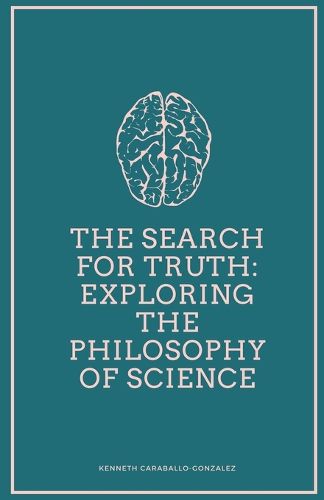Readings Newsletter
Become a Readings Member to make your shopping experience even easier.
Sign in or sign up for free!
You’re not far away from qualifying for FREE standard shipping within Australia
You’ve qualified for FREE standard shipping within Australia
The cart is loading…






This title is printed to order. This book may have been self-published. If so, we cannot guarantee the quality of the content. In the main most books will have gone through the editing process however some may not. We therefore suggest that you be aware of this before ordering this book. If in doubt check either the author or publisher’s details as we are unable to accept any returns unless they are faulty. Please contact us if you have any questions.
Science has made remarkable progress in uncovering the mysteries of our world. But what is science, and how do we know what we know? This book aims to explore the philosophy of science, examining the fundamental assumptions, methods, and principles that underpin scientific inquiry.
Starting with a historical overview of the development of science, the book will explore key philosophical questions that arise in the context of scientific research. For example, what is the nature of scientific knowledge? How do scientists make sense of their data and observations? What is the relationship between science and other areas of knowledge, such as art and religion?
The book will also delve into the epistemological and metaphysical foundations of science, examining the nature of truth, causality, and explanation in scientific theory. It will discuss the role of models, theories, and laws in scientific explanation and explore the limits of scientific knowledge.
In addition, the book will examine the ethical and social dimensions of science, addressing issues such as scientific responsibility, the ethics of experimentation, and the role of science in shaping society.
Drawing on a wide range of examples from different scientific fields, the book will engage readers in a thought-provoking exploration of the nature and limits of scientific inquiry. Ultimately, it will argue that the search for truth is a fundamental human pursuit, and that the philosophy of science offers a rich and nuanced perspective on this quest.
$9.00 standard shipping within Australia
FREE standard shipping within Australia for orders over $100.00
Express & International shipping calculated at checkout
This title is printed to order. This book may have been self-published. If so, we cannot guarantee the quality of the content. In the main most books will have gone through the editing process however some may not. We therefore suggest that you be aware of this before ordering this book. If in doubt check either the author or publisher’s details as we are unable to accept any returns unless they are faulty. Please contact us if you have any questions.
Science has made remarkable progress in uncovering the mysteries of our world. But what is science, and how do we know what we know? This book aims to explore the philosophy of science, examining the fundamental assumptions, methods, and principles that underpin scientific inquiry.
Starting with a historical overview of the development of science, the book will explore key philosophical questions that arise in the context of scientific research. For example, what is the nature of scientific knowledge? How do scientists make sense of their data and observations? What is the relationship between science and other areas of knowledge, such as art and religion?
The book will also delve into the epistemological and metaphysical foundations of science, examining the nature of truth, causality, and explanation in scientific theory. It will discuss the role of models, theories, and laws in scientific explanation and explore the limits of scientific knowledge.
In addition, the book will examine the ethical and social dimensions of science, addressing issues such as scientific responsibility, the ethics of experimentation, and the role of science in shaping society.
Drawing on a wide range of examples from different scientific fields, the book will engage readers in a thought-provoking exploration of the nature and limits of scientific inquiry. Ultimately, it will argue that the search for truth is a fundamental human pursuit, and that the philosophy of science offers a rich and nuanced perspective on this quest.